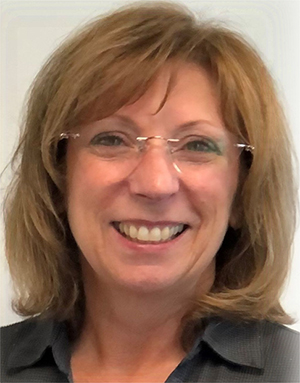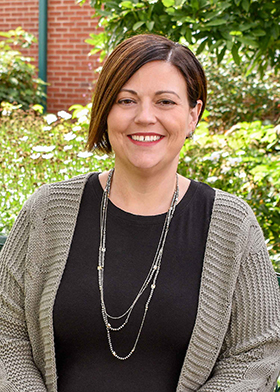HHS Extension’s Empower Me to Be Clutter-Free program goes beyond the disarray to encourage stress-free living
Written By: Rebecca Hoffa, rhoffa@purdue.edu

When clutter comes to mind, people often think of the extreme cases featured on the TV show “Hoarders,” but in reality, many people struggle with managing clutter — either a little or a lot of it — that accumulates in different ways. It could be in the form of sentimental items that individuals just can’t bring themselves to part with, an accumulation of children’s toys from years of birthdays and holidays, or papers that begin to pile up on tables and desks.
Vickie Ramsey, who identifies herself as a sentimental person, had held on to 10 years’ worth of her adult son’s old 4-H posters prior to participating in the Purdue University College of Health and Human Sciences (HHS) Extension’s Empower Me to Be Clutter-Free program in Hancock County, Indiana. The HHS Extension program helped her to identify why she was holding on to these items and how to strategize on what to keep and what to part with — one of those being the old 4-H posters.

Vickie Ramsey(Photo provided)
“It’s hard to let go of things,” Ramsey said. “The older we get and as our family members start to pass on, stuff that they thought was important, I think we feel like it has to be important to us, and it may not necessarily be. I think any tips (Extension) educators can give to their county to help preserve that stuff and reduce clutter are valuable.”
The Empower Me to Be Clutter-Free program was written by Annetta Jones, Extension director and financial resource management educator in Porter County, Indiana. It delves into the emotional barriers that cause clutter as well as strategies to help return order to people’s lives. The program can be split into one, two or three one-hour sessions.
“Hopefully with each of these sessions we are empowering participants with some tools that will help them actually identify the things they don’t need and then find ways they can actually remove (clutter) from their home or space so they can live a less stressful life,” Jones said.

Annetta Jones(Photo provided)
Part of Jones’ inspiration behind the program was the study “Life at Home in the 21st Century,” which recognized the amount of “stuff” people had in their houses and the effect of that build-up.
“A lot of times, we think, ‘Clutter — we all have it — how is that research-based?’” said Pandora Taylor, HHS Extension educator in Boone County, Indiana. “What we’re really doing is we’re talking about the emotional toll that having clutter can have on you. We’re talking about your physical safety if you have clutter in your home. If you have stuff stacked up in hallways and you have a medical emergency or your house catches on fire, you’ve made the first responders’ job harder to get access to you. We talk about the financial end of things; how many times have we gone out and bought something because we know we have it, but we don’t know where it is? There’s a lot of discussion about those educational topics.”
HHS Extension educators such as Mandy Gray of Hancock County have found the program to be extremely popular among participants, both from the feedback received and people’s interest in signing up for upcoming program offerings.

Pandora Taylor(Photo provided)
“As an Extension educator, I’m here to help meet community needs,” Gray said. “This falls into the HHS realm, but this is also a program that I can partner with other organizations on. For example, with the paper clutter, I partnered with our Recycle Hancock County program. A recycling person comes in and shows all the things they can do with anything that’s plastic, paper or glass — it’s going to be repurposed. That is sometimes all participants need to let go of those things.”
Jones said the program is applicable to people of all ages who may be experiencing clutter for different reasons.
“People face the burden of clutter at different stages of their lives,” Jones said. “When I first started teaching it, I had kids, and I had all this toy clutter. Now that my parents have passed and they didn’t downsize all of their items, I’m finding that I have to make decisions about the space that I live in. While I don’t want to get rid of all of the things that meant something in our family, I also can’t absorb all of it, so I have to make those decisions and strategize on it.”

Mandy Gray(Photo provided)
Gray noted the strategies and tips within the program are designed to be applied well beyond the program, encouraging a clutter-free mindset that helps maintain a stress-free environment.
“It’s not just a one and done,” Gray said. “I think that’s the thing where people are like, ‘I decluttered. I’m done.’ It’s a lifestyle — it’s a process — and it never really ends. It’s part of trying to live a healthy lifestyle. It’s not an easy thing for a lot of people, we have found. I was really surprised at the amount of feedback I got back after I taught it the first time, so it’s definitely a need.”
To learn more about program availability and offerings, individuals are encouraged to connect with their county Extension educator. Contact information can be found on the HHS Extension website.
Discover more from News | College of Health and Human Sciences
Subscribe to get the latest posts sent to your email.